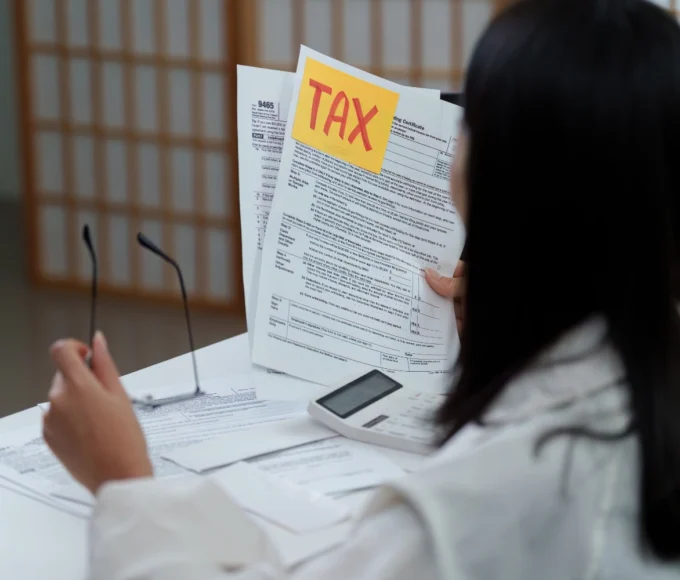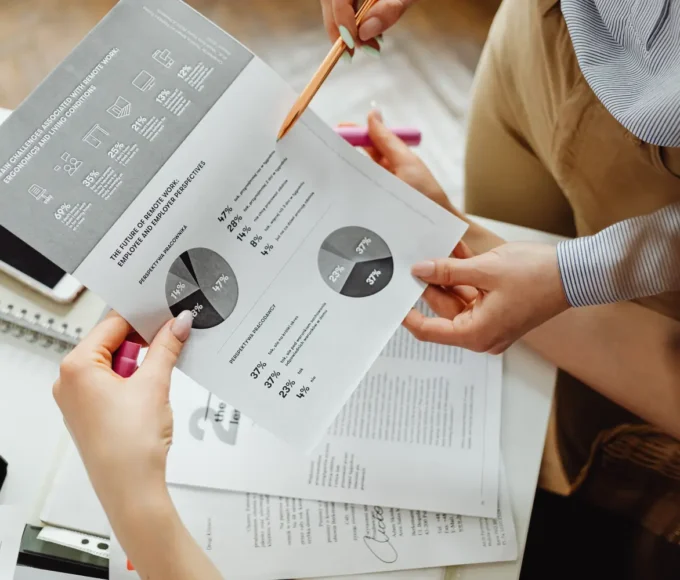When we hear the words bookkeeping and accounting, people often mix up the words. At first, these words sound like the same thing, but they are actually very different from each other. Bookkeeping is the groundwork; it is about noting down sales, purchases, payments, and receipts. Bookkeeping is the simple daily entries, to keep track of where money comes from and where it goes. Accounting is the latter part of the bookkeeping. Accounting takes the records from the bookkeeping, analyse them, and turns them into useful an information. It helps in knowing whether the business is making a profit or a loss, how much money it owns, and what it owes. Bookkeeping is about recording, and accounting is about understanding.
This blog will help you understand the difference between the two, so you can see how bookkeeping and accounting work together to keep a business organized.
What is Bookkeeping?
Bookkeeping means writing down (or entering in software) all the money that comes in and goes out of a business.
It is like keeping a daily diary of money transactions.
- When you sell something → record money received.
- When you buy something → record money spent.
- When you pay salary → record expense.
- When you receive rent → record income.
Example:
If you run a small shop and you sell goods worth ₹500 in cash, you write it in your sales book. If you buy stock worth ₹1,000, you note it in your purchase book. That is bookkeeping.
What is Accounting?
Accounting is the next step after bookkeeping. It involves analysing, interpreting, and presenting the financial data recorded during bookkeeping.
Accounting takes the raw financial records and turns them into useful information like:
- Profit or loss of the business
- Value of assets (like buildings, machines)
- Value of liabilities (like loans, bills to be paid)
- Balance sheet and financial reports
Example:
If bookkeeping shows you sold goods worth ₹10,00,000 in one year and spent ₹8,00,000, accounting will calculate your profit of ₹2,00,000 and prepare a statement to show it.
Bookkeeping Vs Accounting
| Aspects | Bookkeeping | Accounting |
| Definition | It is the process of recording all daily financial transactions – sales, purchases, receipts, and payments. It is like keeping a diary of money matters. | It is the process of summarising, analysing, and interpreting the financial data recorded through bookkeeping. It turns raw data into meaningful reports. |
| Objective | The main purpose is to maintain complete records of every financial transaction accurately in chronological order. | The main purpose is to evaluate the financial performance of the business. It helps in decision-making for growth, investment, and compliance. |
| Scope | It only deals with recording transactions. | It includes preparation of statements, analysis, audits, planning, and decision support. |
| Process involved | In bookkeeping, we identify, classifying, and recording transactions in journals and ledgers. Examples: sales entry, purchase entry, expense entry. | In accounting, we prepare a trial balance, profit & loss account, balance sheet, cash flow statement, ratio analysis, and budgeting. |
| Stage in financial system | It is the first stage of the entire accounting process. | It is the next stage, where bookkeeping data is used to prepare financial reports. |
| Skills needed | Requires basic knowledge of accounting principles and attention to detail. A bookkeeper can work with limited training. | Requires professional expertise, deeper understanding of accounting standards, legal compliance, and analytical skills. |
| Nature of work | The work is clerical, routine, and repetitive in nature. Example: recording daily invoices. | The work is analytical, interpretive, and judgment-based. Example: analysing whether expenses are too high and how to reduce them. |
| Tools used | Journals, ledgers, spreadsheets, and bookkeeping software like GBooks, QuickBooks,etc. | Financial reporting tools, auditing methods, ratio analysis, ERP systems, and advanced accounting software. |
| Decision-making role | Bookkeeping by itself does not help in decision-making. It only provides raw data. | Accounting directly supports business decisions by giving insights on profit, cost control, investment, and tax planning. |
| Dependency | Bookkeeping can exist without accounting (records can be kept even if not analyzed). | Accounting cannot exist without bookkeeping, because it depends on the records maintained. |
How Bookkeeping and Accounting Work Together?
Even though bookkeeping and accounting are different, they are like two wheels of the same cart.
- Bookkeeping is the input (raw data).
- Accounting is the output (useful information).
Without bookkeeping, accounting cannot be done. Without accounting, bookkeeping records have no real meaning.
Example for better clarity
Imagine running a small bakery:
- Every day you buy flour, sugar, and butter. You sell cakes and pastries.
- The bookkeeper will write down:
- Flour purchased for ₹5,000
- Sugar purchased for ₹3,000
- Cakes sold for ₹10,000
- Salaries paid ₹2,000
At the end of the month, all these entries are neatly recorded.
Now the accountant will take these records and prepare:
- Profit & Loss Account: Shows total sales (₹10,000), total expenses (₹10,000), profit or loss.
- Balance Sheet: Shows how much cash, stock, or equipment the bakery owns.
- Advice: Tells you if your bakery is making money or needs cost-cutting.
So, bookkeeper = recorder, accountant = advisor.
Takeaways
- Bookkeeping = recording. Accounting = analyzing.
- Bookkeeping is the base, accounting is the building.
- Bookkeeping is simple, accounting is advanced.
- Both are important for any business – small shop or large company.
Conclusion
Think of a business as a journey. Bookkeeping is like collecting every ticket, bill, and receipt along the way. Accounting is like opening that bundle at the end of the month and asking, “Was the trip worth it? Did we spend too much or make good progress?” One looks at the small steps, the other at the bigger path. Many small businesses ignore this link, but that’s where mistakes creep in – missing payments, wrong tax returns, or unclear profits. When bookkeeping and accounting work together, the picture is complete. It’s not about choosing one over the other, but keeping both in balance.
 gbooksSeptember 24, 20253 Mins read530 Views
gbooksSeptember 24, 20253 Mins read530 Views












Leave a comment